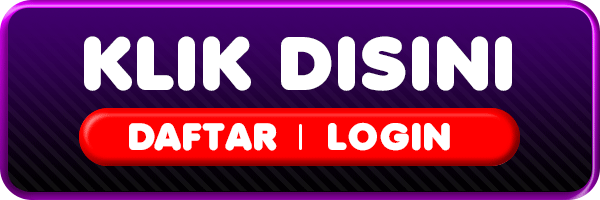SITUS TERPERCAYA
Download Aplikasinya dan Belanja Sekarang!
Success! Please check your phone for the download link
LINK ALTERNATIF RESMI
LAZAWIN | Update Terkini Seputar Otomotif, Regulasi SIM & Keselamatan Jalan
Kategori
- Peralatan Elektronik
- Aksesoris Elektronik
- Fashion Aksesoris Wanita
- Fashion Aksesoris Pria
- Fashion Aksesoris Anak
- Kesehatan Kecantikan
- Bayi Mainan
- TV Elektronik Rumah
- Keperluan Rumah Gaya Hidup
- Kebutuhan Rumah Tangga
- Olahraga Outdoor
- Otomotif
- Aksesoris Handphone
- Aksesoris Komputer
- Audio
- Aksesoris Berteknologi
- Aksesoris Kamera
- Penyimpanan Data
- Printer
- Aksesoris Tablet
- Komponen Komputer
- Pakaian Wanita
- Baju Muslim
- Lingerie, Baju Tidur Santai
- Sepatu Wanita
- Aksesoris
- Tas Wanita
- Perhiasan Wanita
- Jam Tangan Wanita
- Pakaian Pria
- Baju Muslim
- Pakaian Dalam
- Sepatu Pria
- Aksesoris
- Tas Pria
- Perhiasan Pria
- Jam Tangan Pria
- Pakaian Anak Laki-laki
- Pakaian Anak Perempuan
- Pakaian Anak Muslim Laki-Laki
- Pakaian Anak Muslim Perempuan
- Sepatu Anak Laki-laki
- Sepatu Anak Perempuan
- Tas Anak
- Perhiasan Anak
- Jam Tangan Anak
- Perawatan Kulit
- Makeup
- Perawatan Rambut
- Perawatan Tubuh
- Perawatan Diri
- Parfum
- Alat Kecantikan
- Suplemen Makanan
- Alat Medis
- Sexual Wellness
- Perawatan Pria
- Popok Dewasa
- Ibu Anak
- Popok Sekali Pakai
- Makanan Bayi Balita
- Pakaian Aksesoris
- Perlengkapan Menyusui
- Perlengkapan Bayi
- Kamar Bayi
- Perawatan Bayi
- Mainan
- Mainan Elektronik RC
- Mainan Olahraga Luar Ruangan
- Mainan Bayi Balita
- TV Perangkat Video
- Peralatan Dapur Kecil
- Elektronik Rumah Besar
- Penyejuk dan Pembersih Udara
- Penghisap Debu Perawatan Lantai
- Alat Perawatan Diri
- Aksesoris Suku Cadang
- Aksesoris Televisi
- Home Entertainment
- Dekorasi Rumah
- Furnitur
- Kelengkapan Tempat Tidur
- Penerangan
- Peralatan Mandi
- Alat Dapur
- Binatu Alat Kebersihan
- Perkakas Perbaikan Rumah
- Kebun Luar Ruangan
- Alat Tulis Kerajinan
- Media, Musik Buku
- Minuman
- Bahan Bumbu Masakan
- Cokelat, Camilan Permen
- Makanan Sarapan, Sereal Selai
- Buah Sayur
- Kebutuhan Rumah Tangga
- Makanan Hewan Peliharaan
- Aksesoris Hewan Peliharaan
- Kesehatan Hewan Peliharaan
Kategori
- Peralatan Elektronik
- Aksesoris Elektronik
- Fashion Aksesoris Wanita
- Fashion Aksesoris Pria
- Fashion Aksesoris Anak
- Kesehatan Kecantikan
- Bayi Mainan
- TV Elektronik Rumah
- Keperluan Rumah Gaya Hidup
- Kebutuhan Rumah Tangga
- Olahraga Outdoor
- Otomotif
- Aksesoris Handphone
- Aksesoris Komputer
- Audio
- Aksesoris Berteknologi
- Aksesoris Kamera
- Penyimpanan Data
- Printer
- Aksesoris Tablet
- Komponen Komputer
- Pakaian Wanita
- Baju Muslim
- Lingerie, Baju Tidur Santai
- Sepatu Wanita
- Aksesoris
- Tas Wanita
- Perhiasan Wanita
- Jam Tangan Wanita
- Pakaian Pria
- Baju Muslim
- Pakaian Dalam
- Sepatu Pria
- Aksesoris
- Tas Pria
- Perhiasan Pria
- Jam Tangan Pria
- Pakaian Anak Laki-laki
- Pakaian Anak Perempuan
- Pakaian Anak Muslim Laki-Laki
- Pakaian Anak Muslim Perempuan
- Sepatu Anak Laki-laki
- Sepatu Anak Perempuan
- Tas Anak
- Perhiasan Anak
- Jam Tangan Anak
- Perawatan Kulit
- Makeup
- Perawatan Rambut
- Perawatan Tubuh
- Perawatan Diri
- Parfum
- Alat Kecantikan
- Suplemen Makanan
- Alat Medis
- Sexual Wellness
- Perawatan Pria
- Popok Dewasa
- Ibu Anak
- Popok Sekali Pakai
- Makanan Bayi Balita
- Pakaian Aksesoris
- Perlengkapan Menyusui
- Perlengkapan Bayi
- Kamar Bayi
- Perawatan Bayi
- Mainan
- Mainan Elektronik RC
- Mainan Olahraga Luar Ruangan
- Mainan Bayi Balita
- TV Perangkat Video
- Peralatan Dapur Kecil
- Elektronik Rumah Besar
- Penyejuk dan Pembersih Udara
- Penghisap Debu Perawatan Lantai
- Alat Perawatan Diri
- Aksesoris Suku Cadang
- Aksesoris Televisi
- Home Entertainment
- Dekorasi Rumah
- Furnitur
- Kelengkapan Tempat Tidur
- Penerangan
- Peralatan Mandi
- Alat Dapur
- Binatu Alat Kebersihan
- Perkakas Perbaikan Rumah
- Kebun Luar Ruangan
- Alat Tulis Kerajinan
- Media, Musik Buku
- Minuman
- Bahan Bumbu Masakan
- Cokelat, Camilan Permen
- Makanan Sarapan, Sereal Selai
- Buah Sayur
- Kebutuhan Rumah Tangga
- Makanan Hewan Peliharaan
- Aksesoris Hewan Peliharaan
- Kesehatan Hewan Peliharaan













 Promosi
Promosi  Login
Login  Daftar
Daftar  Link
Link  Live Chat
Live Chat